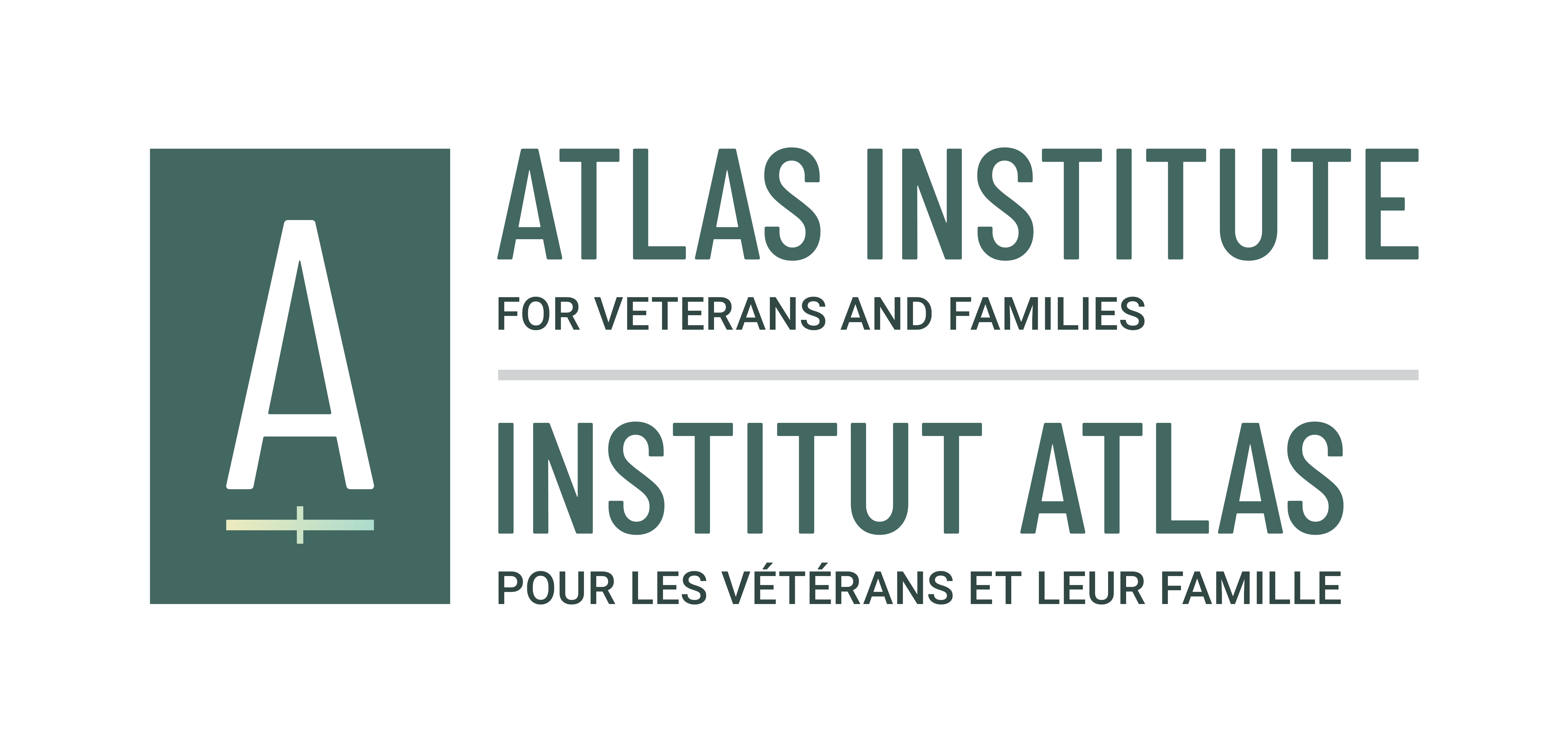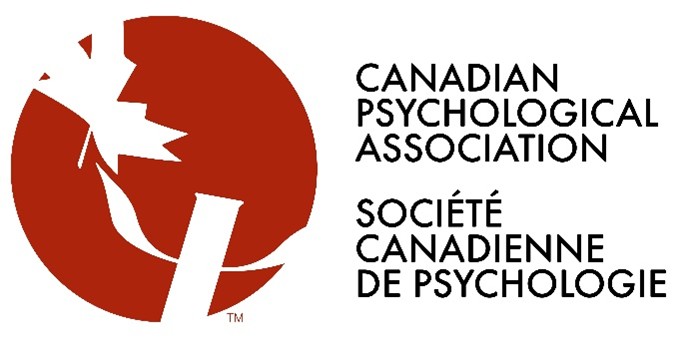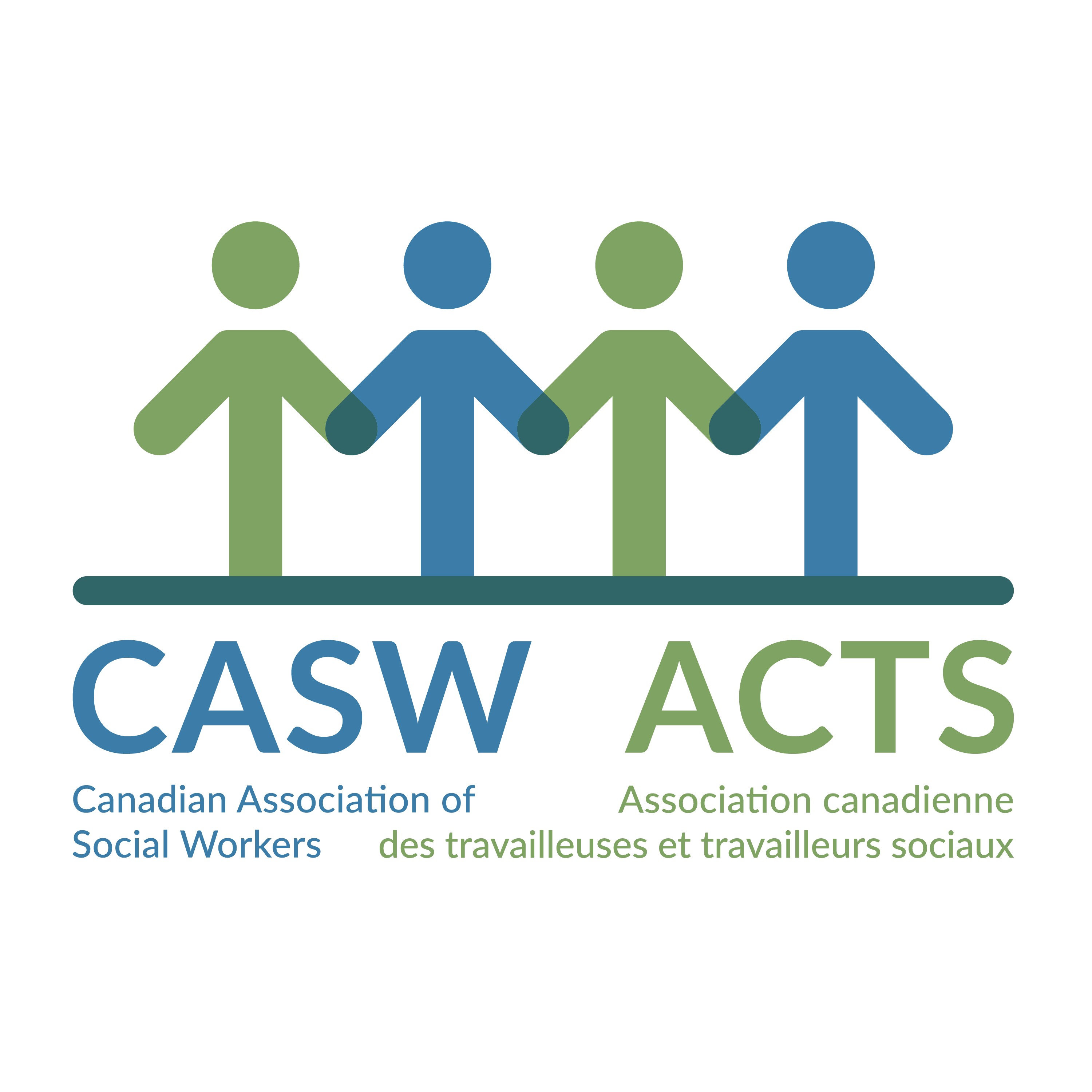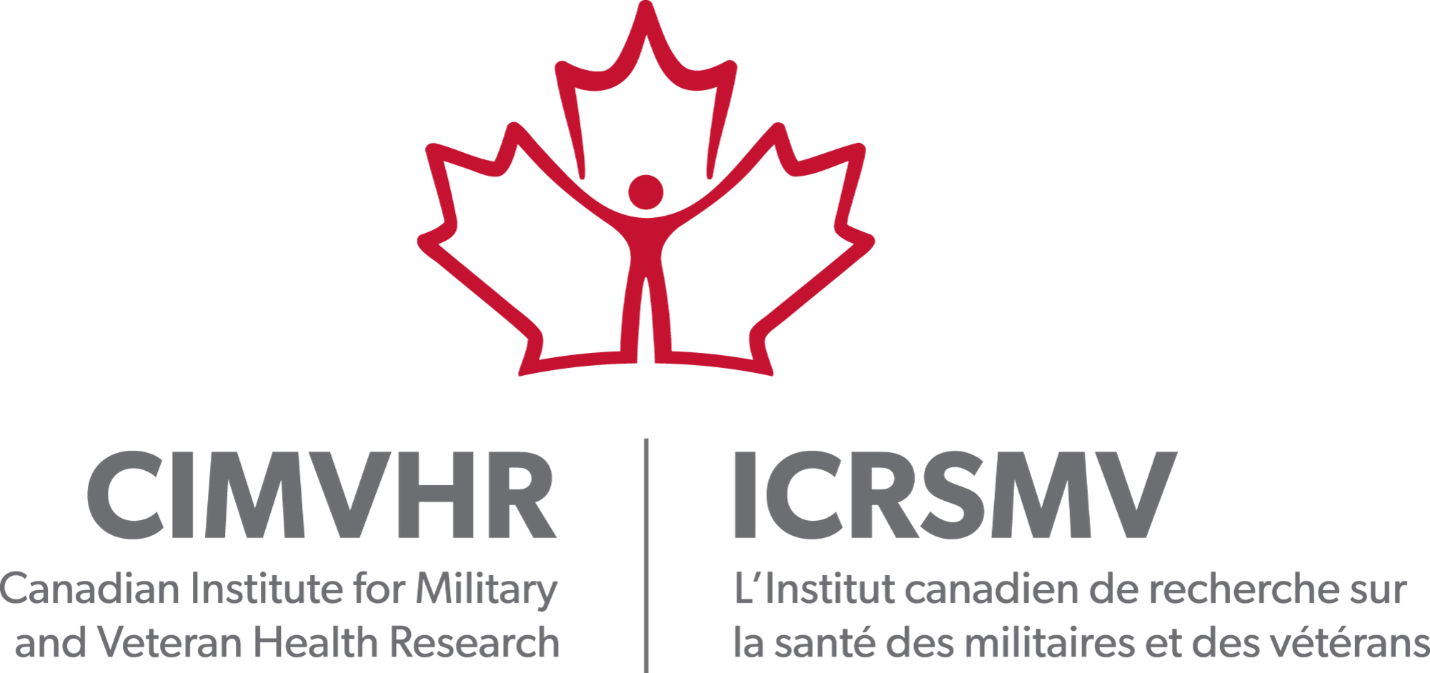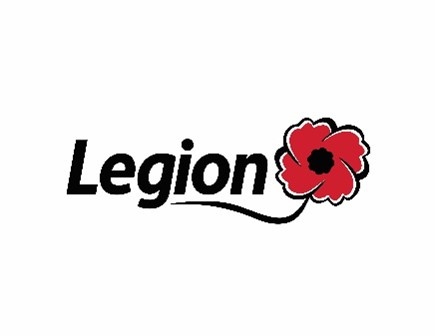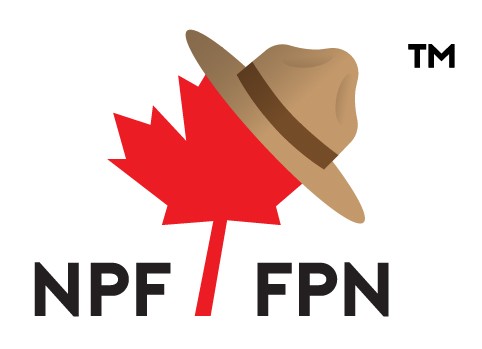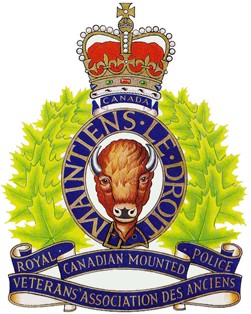OTTAWA, ON — November 10, 2025 — In Canada, as our thoughts turn to Remembrance Day, the traditional image often associated with a Veteran is one of a middle-aged or older man, navy blazer, military medals on his chest and the cost of service visibly etched on his face.
This representation may be attributed to the honours of service in the two World Wars from which remembrance originally sprang – the red poppy symbolizing the service and sacrifice of Veterans and those fallen in war. Certainly, during those times the vast majority of those who served were young men. Those who were fortunate enough to come home to their loved ones were honoured in acts of remembrance alongside their fallen comrades. Death and physical injury were the lingering outcomes most often associated with their service, with few degrees of separation between those who had served, their time on the battlefields and their memories of comrades lost.
But we are almost 80 years past those campaigns. The faces of those who have signed on the dotted line since, what that service has looked like and the transition to post-service life have all changed. Our military operations didn’t end with our participation in these major global conflicts. Indeed, Canada has continued to recruit, train and deploy soldiers both across the globe and domestically in operations of national emergency, as well as to provide support in international conflicts and in peacekeeping missions.
And as Canada has diversified, so has our military. Women now make up almost 20 per cent of the Canadian Armed Forces, as do people from almost every ethnic group that make up the fabric of Canada. Similarly, alongside physical injuries, many Veterans often bear the invisible wounds of service, which can have similar or in some cases more devastating impacts.
While they may not have seen the loss of comrades in battle in the same numbers as in the global conflicts of yesteryear, many of today’s members too have experienced the grief and devastation of losing someone alongside whom they have served. Today’s Veteran of conflicts such as the Korean War, Persian Gulf War, the former Yugoslavia, Afghanistan or peacekeeping operations like Haiti, Syria and the Golan Heights, among others, have experienced losses different in nature, but losses nonetheless whether they be from combat, training accidents or mental health injuries.
The toll from service-related mental health challenges is not new, but these impacts – and the need to properly address them – are now coming to light in a significant way. We also know that companion injuries such as traumatic brain injury and moral injury often mimic and occur alongside posttraumatic stress disorder (PTSD). The symptoms can be difficult to understand – prolonged feelings of anger, sadness, panic, difficulty concentrating, sleeping and intrusive thoughts and memories. The cumulative effect can lead to self-medicating behaviours.
This isn’t a small number of individuals affected, with a 2016 survey of Regular Force Veterans released between 1998 and 2015 self-reporting PTSD. It isn’t hard to draw a line between these issues and the higher rates of Veteran suicide. The Veteran Suicide Mortality Study, a collaborative study between Veterans Affairs Canada, the Department of National Defence and Statistics Canada examined over 230,000 Veterans who had released from the Canadian Armed Forces between 1976 and 2014 or an almost 40-year time frame. What they found was that overall male Veterans had a 1.4 times higher risk of dying by suicide compared to other male Canadians. Younger male Veterans had a significantly higher risk than other male Canadians and those under 25 had a risk that was 2.5 times greater. Women Veterans had almost double the suicide risk compared to other Canadian women.
If the individual is struggling with this, what is the impact on the Family? Suicidality in a Family member has a profound, multifaceted and long-lasting impact, including severe emotional, psychological, social and even financial consequences for the entire Family unit, including an increased risk for the non-serving Family member to have their own mental health issues.
The truth is we continue to lose those who have served to their injuries, but it is not as easy to find the number after they’ve left the Forces as it is to attribute a loss of life from a battlefield injury.
So if mental health concerns are now the wounds of the modern-day Veteran – an invisible burden they carry back from their time in service – then there is a recognized duty to support their needs in this area in the most accessible, efficient, effective ways possible. Full stop. And this comprehensive plan for mental health care would be incomplete without the Family and their needs being considered as part of the whole, especially given Family member’s critical role in supporting the well-being of the member and their own burdens, sacrifices and service as they do this.
It is Canada’s duty of care to the Veterans of Canada and their Families to continue to honour their changing experiences of service and the losses that continue to accumulate. Suicide is the modern-day malady of the modern-day Veteran.
— Fardous Hosseiny, President and CEO, Atlas Institute for Veterans and Families
Visit our Veterans’ Week 2025 page to learn more about the different ways to commemorate.
Posttraumatic stress disorder — PTSD — is a problem that many more Canadians struggle with than one may suspect; approximately 6.8 % reporting having experienced it at some point in their lives.
However, there are populations with increased exposure to potentially traumatic events specific to occupational risks. For example, Canada’s active military, Veterans, first responders, and other public safety personnel experience PTSD at even greater numbers than Canada’s national average ranging from 10 to as high as 30 %. Even a single traumatic event can trigger PTSD, let alone an entire career of repeated exposure.
The impact of mental health in the workforce can be substantial. Whether measuring the direct economic burden or the relationship between mental health and worker productivity such as absenteeism and presenteeism there is evidence that poor mental health leads to productivity losses. Given both its prevalence and impact it is important those impacted know there is access to effective treatment when they are faced with the psychological costs of that service.
For various reasons effectively treating PTSD among both military and public safety professions remains challenging. Barriers to treatments can include stigma due to the high value placed on stoicism and resiliency, costs and lack of access to available evidence-based PTSD treatments, fear of job repercussions, and even difficulty getting time off work. These factors can all further complicate work on addressing PTSD. Certainly, these populations have not seen their needs go down, given the global impact of a pandemic, wars and instability which have hit far too close to home for the community.
Recognizing the scale of this issue, five years ago the Government of Canada made an important first step in announcing a national action plan for PTSD with a mandate to improve tracking of posttraumatic stress (PTS) and its economic and social costs, to promote and share guidelines and best practices for PTSD diagnosis, treatment and management and for the creation and distribution of educational materials. This plan is set to be reviewed this year for effectiveness and to analyze results.
With the five-year mandate wrapping up, the question that must now be asked is, what is the next step for an issue that should not be relegated to the back burner?
What we do know is this is an issue meant to be tackled collaboratively, across all sectors. In 2022, 19 member organizations from across Canada came together to form the National Collaborative on PTSD. Ours is a community established to identify and partner with peer organizations focused on PTSD within the broader mental health landscape.
This collaborative is a broad community made up of many organizations serving various populations united by a shared commitment to supporting the mental health and well-being of individuals affected by service-related PTSD and their families. The membership includes national organizations in the mental health and substance use space, national organizations for mental health professions, military and Veteran serving organizations as well as those representing public safety personnel and health care providers all with a unified emphasis on collective community action. We are well-equipped to address the findings of the federal framework’s effectiveness analysis once it is finalized. Our aim is to serve as the catalyst for conversations surrounding the emerging issues that affect the military and public safety sector and to strengthen our connections within the communities we support.
In the years since its founding, the Collaborative’s understanding of the scope, scale, and impact of PTSD has grown, and our unified message is clear; more action needs to be taken.
With June being PTSD Awareness Month, we are calling for continued and sustained support and action across all sectors and levels of government to improve the treatment outcomes for those whose chosen careers have resulted in serious mental health concerns. It is important to recognize there are still significant needs to address. As a collaborative we are committed to a continued cross-sectoral focus and efforts to continue building the necessary momentum to carry through on the foundation which has been collectively created.
As Canadians, we make incredible asks of first responders, public safety personnel, military, and Veterans every day. We ask for them to be our carers in the times of our greatest need. The National Collaborative on PTSD is committed to working shoulder-to-shoulder as a force united in our mission to give back to those who have earned our support in their recovery.
Members of the National Collaborative,
Fardous Hosseiny
(co-chair of National Collaborative)
President and Chief Executive Officer
Atlas Institute for Veterans and Families
Dr. Leslie Anne Keown
(co-chair of National Collaborative)
Executive Director
Canadian Institute for Public Safety Research and Treatment (CIPSRT)
Brian Sauvé
President and Chief Executive Officer
National Police Federation
Dave Gallson
National Executive Director
Mood Disorders Society of Canada
Fred Phelps
Executive Director
Canadian Association of Social Workers
Cam Kowalski
Director of Operations
Chronic Pain Centre of Excellence for Canadian Veterans
Berkley Lawrence
President
The Royal Canadian Legion National Headquarters
Dr. Nicholas Held
Interim Scientific Director
Canadian Institute for Military and Veteran Health Research
Dr. Lisa Votta-Bleeker
Chief Executive Officer
Canadian Psychological Association
Dr. Catherine Hickey
President
Canadian Psychiatric Association
Karen Cumberland
Vice President
Canadian Centre on Substance Use and Addiction (CCSA)
Mike Duffy
Veterans Homelessness Program
Association Homelessness Support Teams Coordinator
RCMP Veterans’ Association
The Tomb of the Unknown Soldier. Photo credit: Master Warrant Officer (Ret’d) Floyd Powder
OTTAWA, ON — November 10, 2024 — In Flanders Fields by Canadian physician Lieutenant-Colonel John McCrae may be the most widely known poem that honours the lives of those who have served. It continues to be heard in Remembrance Day services around the world and a source of inspiration in countless ways for the duty we as the living have to honour the sacrifice of the fallen who gave their lives in war.
There is a lesser-known poem also inspired by this piece that has its own origin story of how the symbol of the poppy came to be an enduring sign of remembrance.
Moina Michael was an American woman so moved hearing this poem that she wrote a response called We Shall Keep the Faith and made a personal pledge vowing to wear a red poppy as remembrance. She began producing artificial poppies and then used funds raised from this initiative to support ex-servicemen returning from the First World War. Her initiative caught the eye of and was promoted by a Frenchwoman named Anna E. Guérin, adopted by the Royal British Legion in 1921 for the first-ever Poppy Appeal that November 11, and then by Canada, Australia and New Zealand. As a result, the poppy has been a symbol of remembrance worldwide for over 100 years. Think about the impact of that as we see the poppy funds today!
The second stanza of her response is particularly beautiful and in my mind instructive, more than a century after she penned it on the back of a used envelope:
We cherish too, the poppy red
That grows on fields where valor led
It seems to signal to the skies
That blood of heroes never dies,
As I don my own poppy this year, I think about what a difference one person can make in continuing to honour what can feel at times so very far removed from our present-day lives, be that McCrae’s, Michael’s or Guérin’s contributions to the simple poppy coming to be the ongoing symbol of remembrance around the world, or what perhaps we can contribute in modern times individually. Because, truthfully, the reality is it is not that far removed at all if we ask ourselves a timeless question: “In remembrance, who might be the forgotten?”
Here in Canada we know that more than 118,000 brave soldiers did not return home to their loved ones throughout our short history of a nation. Canada’s eight Books of Remembrance, which record the names of every Canadian who died in service to our country, are currently displayed at Parliament Hill’s Visitor Welcome Centre, in the Room of Remembrance.
Something we have recently become aware of is that not all who have served find themselves remembered in death. For instance, burial sites and grave markers. This may simply be because of a lack of awareness of available programs or perhaps there were many years between their service and time of passing, or even that they hadn’t considered themselves a Veteran by definition. Some have simply never been identified. It is important that education around this happens so all who have served are recognized with headstones honouring their service, including those who historically have served. There is a program through Veterans Affairs Canada and the Commonwealth War Graves Commission that ensures the maintenance of more than 300,000 markers and grave sites of Canadian Armed Forces members here and around the world, including those whose deaths were not directly attributed to service. It is particularly meaningful to know this exists where some might have fallen into disrepair or where no living relative remain to continue to provide for the upkeep, thus ensuring these grave sites are maintained throughout time.
Whether they lie marked in Flanders, Bény-sur-Mer, Beechwood, or unmarked throughout the world, these are places where valour lies. These are heroes. We must remember all and their lives and their service must be honoured.
While there is an official count of the war dead, there is growing recognition of a number not accounted for — those lost to their psychological wounds incurred as a result of service. As conversations become more open and honest about mental health and how this has been a real impact of service, when we lose a former serviceperson (or currently serving member) to suicide, the question many grapple with now is: How do we officially honour those lives? It is welcome to see this year’s Memorial Cross Mother (also known as the Silver Cross Mother) recognized for her loss of two sons to the impacts of posttraumatic stress disorder.
At the Atlas Institute for Veterans and Families, the feedback we hear from our community is that mental health injuries are no different than the physical injuries which our Veterans incur and should be treated as such. The impact is equal and they are no less heroes than those who died in uniform. As such, it is imperative to honour them in equal measure of remembrance.
As we expand our remembrance practices to include all types of injuries, we have an opportunity to become leaders in advocating for comprehensive recognition of Veterans’ sacrifices.
Beyond that, our responsibility as Canadians does not end on Remembrance Day — it extends into everyday acts of awareness, support and education around the complex realities of military service. There is no differentiation. We can make that statement unequivocally and stand on November 11 with our Veterans and Family members in honouring their loved ones who died both in service and post-service as a result of their injuries sustained.
Perhaps, inspired by the enduring symbol of the poppy and the difference one can make, we can move forward with a renewed understanding: service is service, the blood of all heroes never dies and our remembrance of all should be equally enduring regardless of the nature of their wounds.
— Fardous Hosseiny, President and CEO, Atlas Institute for Veterans and Families
Visit our Veterans’ Week 2024 page to learn more about the different ways to commemorate.
OTTAWA, ON — November 29, 2023 — The Atlas Institute for Veterans and Families extends its deepest gratitude for the invaluable participation of the inaugural cohort of reference group members who have provided input and feedback to Atlas over the last three years as their terms ends today. “We would like to thank all reference group members for their contributions over their three-year term that have guided the Atlas Institute’s work in service to Veterans and Families across Canada,” said Fardous Hosseiny, President and CEO of the Atlas Institute. “These last three years have been a period of building and growth for the organization and the reference groups have been paramount to all the work that we have accomplished here.”
Hosseiny added that what was particularly remarkable about the individuals who came together in response to the original callout in the fall of 2020 was their willingness to step up at a time when the Atlas Institute was still an unknown entity. “These four groups of stakeholders who answered the call to join us at that time were answering a call to a vision. And that is substantially different than coming forward to join a known commodity,” he said, adding that to do so took an immense amount of trust in the vision that was being shared and in the early leadership of the organization.
The Atlas reference group membership is made up of volunteers wiling to provide strategic advice and expertise on specific initiatives and priority areas, and to serve as champions for Atlas at external events. “Whether as Canadian Armed Forces or Royal Canadian Mounted Police Veterans, Family members, service providers or researchers in the space, the purpose of reference groups has been to offer diverse forms of expertise or experiences in Veteran mental health promotion, research, practice and policy together to support the betterment of the mental and well-being of Veterans and Veteran Family members. They guide the work at Atlas by creating infrastructure for input, feedback and strategic advice from a multidisciplinary and diverse group.”
Over the past three years, 42 reference group members have responded to 30 expressions of interest in Atlas projects, including critically the organization’s rebrand from the original Centre of Excellence on PTSD and inaugural five-year strategic plan, They have also supported with a resource on moral injury for Veterans and Families, suicide prevention resources in collaboration with the Centre for Suicide Prevention and the early stages of community consultation with the development of First Nations, Inuit and Métis resources, among others.
In addressing outgoing reference members, Hosseiny said, “Thank you for bringing your unique perspectives, and importantly, your passion to the work at Atlas over this three-year commitment. Our success as an organization in this very short time can be attributed to you, this community who supported us with your knowledge, your experiences and your guidance.
He added, “As this cohort winds up their term, the reference group model will shift somewhat but will still incorporate lived experience, service providers and researchers to guide our work moving forward. “We are looking forward to welcoming the next cohort of reference group members starting today and to learn from them over this upcoming term.”
Ottawa, ON – November 10, 2023 – Each Remembrance Day, we take the time to honour the service and sacrifices of those who have dedicated their lives to military service. We remember the more than 100,000 soldiers who lost their lives during various conflicts.
At home and overseas, in times of war and peace, Veterans of all ages and backgrounds are the ones who bravely answered the call to give back to Canada. Veterans’ service is as varied and diverse as Veterans themselves. There are over 450,000 Veterans of all ages with diverse backgrounds and experiences, each with a different story to tell. Some may have served decades ago in the Second World War or the Korean War. Others in the Gulf War or in Somalia, Rwanda or the Balkans in the 1990s, in Afghanistan from 2001 to 2014, or more recently in Iraq or Latvia. Veterans have also served on home soil, providing support during natural disasters such as devastating wildfires or floods, as well as in long-term care homes to bring relief to health care workers during the global pandemic. All who have served and since left the Canadian Armed Forces are Veterans, and we recognize and thank them all for their service.
“For some, Remembrance Day is a reminder of personal experience. For others, it is a reminder of the contributions of others to our way of life and freedoms. And with each passing year, it is always a sobering reminder to instruct our youth about the cost of war and the camaraderie of survivors.”
– Tabitha Beynen, Lived Expertise Lead, Veterans, Atlas Institute for Veterans and Families
Our thoughts are also with the countless soldiers who returned home, their lives forever changed by service, with physical and invisible wounds left by things that most of us could never imagine. We also think of their Families who support them through seemingly endless periods of training, exercises and deployment, and whose sacrifices often go without the recognition they deserve.
“On the 11th of November, I want people to take that time – two minutes… it’s not that much. But those two minutes, if you actually spent them reflecting on why we have all these good things around us, then you’re doing it right.”
– Brian McKenna, National Strategic Advisor, Veterans, Atlas Institute for Veterans and Families
Many Canadians ask themselves how they can best honour Veterans and their Families on Remembrance Day and every day of the year. First, on Remembrance Day, we can all take two minutes to pause and reflect on the sacrifices of those who have given so much of themselves for our country. Second, we can listen to their stories and share their experiences. Finally, we can all advocate for improved care and supports for Veterans and their Families.
We will never forget what they have given us, as individuals and as a country.
“For me it helps when people acknowledge that life has been a little bit more difficult at times for us.”
– Polliann Maher, Lived Expertise Lead, Families, Atlas Institute for Veterans and Families
Visit our Veterans’ Week 2023 page to learn more about the different ways to commemorate.
OTTAWA, ON — July 26, 2023 — The Atlas Institute for Veterans and Families welcomes the appointment of Ginette Petitpas-Taylor to the role of Minister of Veterans Affairs and Associate Minister of National Defence, as part of the new federal cabinet.
“We would like to congratulate Minister Petitpas-Taylor on her appointment,” Fardous Hosseiny, President and CEO of the Atlas Institute said. “Minister Petitpas-Taylor brings a wealth of relevant experience to this portfolio, both from her time in government as the Minister of Health and her role on the NATO Parliamentary Association, as well as her pre-political experiences as a civilian with the Royal Canadian Mounted Police (RCMP), and within the mental health sector.”
“We are looking forward to this opportunity to build on the supportive relationship we have established with Veterans Affairs Canada (VAC) and the ministry in advancing the work of supporting our Canadian Armed Forces (CAF) and RCMP Veterans and their Families,” Hosseiny added.
Recognizing the contributions of outgoing Minister Lawrence MacAulay, Hosseiny thanked Minister MacAulay and his team for their support of the Atlas Institute through its formative years. “As a relatively new organization, the support from Minister MacAulay and his team contributed to our ability to quickly mobilize, particularly during a global pandemic, and establish Atlas as a highly connected national organization, leading innovative research and producing and curating trusted information and resources regarding mental health and well-being for Veterans, Families and mental health service providers. We wish him and the team well as they transition to a new portfolio.”
Brian McKenna, National Strategic Advisor for Veterans, and Laryssa Lamrock, National Strategic Advisor for Veteran Families, who both sit on the Minister’s advisory groups, echoed their thanks to Minister MacAulay, while welcoming the opportunity with the new Minister to continue to inform and shape the landscape of supports for those who have served and for their loved ones.
“We have seen an increased focus on the needs of Veterans and Families in Canada and opportunities to engage in collaborative solutions by working in tandem with partners at every level,” McKenna said. “There is a solid foundation that has been built in the efforts to improve the landscape for services in support of those who have served, and we look forward to furthering this work. So we welcome Minister Petitpas-Taylor and the continued focus on the community.”
Lamrock identified that Veteran Families have distinct needs and experiences and so have been an area of interest and focus in their own right. As such, she too looks forward to collaborating to build on the work already in progress to raise awareness of Veteran Families’ needs and identify ways to benefit the Family as a whole through collaboration and a common vision.
Hosseiny added: “Given Minister Petitpas-Taylor’s well-known passion for community, we welcome her leadership to as we work together to support the well-being of the more than 600,000 Canadians who have served their country tirelessly and the Families who have served alongside them.”
For more information, contact: media-atlas@theroyal.ca
Each Remembrance Day, we reflect upon and honour the service and sacrifices of those who have defended and supported our country through military service. On the battlefield, as peacekeepers, and as rescuers in domestic operations, from the Boer War to Hurricane Fiona, members of the Canadian Armed Forces, the Royal Canadian Mounted Police and allied police forces have bravely answered the call.
To this day we have lost more than 100,000 soldiers to these various conflicts. Yet, for many who have returned, the impacts of service are something they continue to live with. Whether from the loss of irreplaceable time with family, to witnessing violence and death, to invisible injuries to the mind, body and spirit, service requires a level of courage that is for the most part unimaginable for many of us.
“Every soldier who has seen action knows that it requires the highest type of stamina and bravery for troops to lie in a trench and take a heavy shelling without being demoralized and panic stricken.”
Captain Bellenden S. Hutcheson,
76th Royal Field Brigade,
First World War
The consequences of service are often life altering. Whether it was a Cameron Highlander returning from the Second World War or a member of Princess Patricia’s Canadian Light Infantry coming back from Kandahar 60 years later, the feelings and reactions are much alike.
“The world, as I had known it, was no longer there. Everything around me had changed. I couldn’t understand it, or adjust to it. But I had to do something with
my life . . . “
E. Christensen,
Queen’s Own Cameron Highlanders/Winnipeg Grenadiers,
Second World War
On this Remembrance Day, we ask ourselves how best to honour Veterans and their Families today and every day of the year. The answer is quite simple: listen to their stories, learn from their experiences, advocate for improved care and supports, and never forget what each Veteran and their Family have given to us, as individuals and as a country.
View our new video in honour of Veterans’ Week 2022:
First person statements from Veterans sourced from Veterans Affairs Canada
Image credit for video:
Canadian Armed Forces members deployed on Operation LENTUS clear debris caused by Hurricane Fiona, in Burnt Islands, Newfoundland, September 30, 2022. Photo by: Corporal Braden Trudeau, Canadian Armed Forces Imagery Technician. This reproduction is a copy of an official Work that is published by DND/CAF and has not been produced in affiliation with, or the endorsement of, DND/CAF.
Recognizing the wide-ranging effects military sexual misconduct (MSM) has had on current and former Canadian Armed Forces (CAF) members, CAF Veterans, and their Families, the Atlas Institute for Veterans and Families (the Atlas Institute) welcomes the public release by Minister of National Defence, Anita Anand, of the report by former Supreme Court Justice Louise Arbour, and the government’s commitment to respond to the recommendations on how best to address this crisis.
The recommendations, in intent, honour the journey of those who have experienced military sexual trauma (MST), setting the stage for cultural and systemic change.
As noted by Minister Anand, as well as Justice Louise Arbour, the inclusion of external expertise consultation is imperative to the successful implementation of the recommendations put forward, especially as action in response to previous reports and recommendations has not sufficiently materialized.
The Atlas Institute recognizes the many roles different stakeholders can have in building a coordinated response to the recommendations and is committed to supporting the collaborative efforts of all partners in moving the 17 recommendations prioritized for this year forward in a thoughtful, strategic way, as guided by those impacted. Importantly, the voices of people impacted by MST must continue to be included throughout the process to guide the necessary changes and ensure they are as meaningful in execution as in intent.
In addition to participating, where possible and appropriate, in the roll out of the recommendations, the Atlas Institute is committed to continue improving the well-being of those impacted by MSM through its ongoing operations and work already initiated. This includes sharing information about peer support programs and services, identifying the needs of service providers and developing educational resources to support their interactions with Veterans and Veteran Families impacted by MSM, developing informational resources for Veterans and Veteran Families, ongoing participation in the Canadian Military Sexual Trauma Community of Practice, and ensuring that those with lived experience of MST are not only heard but that their wisdom informs and guides our work.
Further, it is important to be aware of the myriad of emotions that those impacted by MST may be experiencing after a landmark event like this, where anticipated actions are being discussed. The Atlas Institute has an online hub with easily accessible information, including a fact sheet about MST which provides links to available resources. This can be found at https://atlasveterans.ca/knowledge-hub/military-sexual-trauma-mst/.
We remain hopeful that, through prompt action on the recommendations that have emerged from the report, a coordinated system-wide approach will create the necessary environment for lasting change. And, we applaud the courage of the individuals who have publicly shared their experiences, no matter how difficult it was to do so, in the hope their stories could influence the path of others.
For further information, contact:
media-atlas@theroyal.ca
We recognize the commitment healthcare providers have to delivering the best possible support to clients. Wounded Warriors Canada and the Atlas Institute for Veterans and Families are excited to announce Introduction to Trauma-Exposed Professionals training, available now on Wounded Warriors Canada’s Warrior Health platform.
We are here to assist your efforts to deliver evidence-based practices aimed at improving the mental health of Canadian Veterans and Veteran Families, by offering access to the Introduction to Trauma-Exposed Professionals course at no cost to 500 Canadian service providers who care for Veterans and Veteran Families.
This course is for healthcare providers who work with current or former members of the Canadian Armed Forces (CAF), the Royal Canadian Mounted Police (RCMP), public safety personnel (PSP), and their Families. It was created for healthcare providers who want to increase their knowledge and understanding of the unique experiences of those who work in professions where exposure to trauma may be a regular feature.
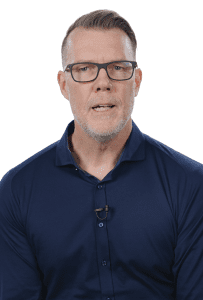 The course was developed by Wounded Warriors Canada’s National Clinical Advisor, Dr. Tim Black, R. Psych, with support from the Atlas Institute for Veterans and Families. It provides culturally-specific clinical approaches to support the mental health needs of those who serve (or have served) Canada at home and abroad. As well, the course builds awareness of the divide that exists between trauma-exposed professionals and the public, who may not understand the potential impacts of their service on their mental health and well-being.
The course was developed by Wounded Warriors Canada’s National Clinical Advisor, Dr. Tim Black, R. Psych, with support from the Atlas Institute for Veterans and Families. It provides culturally-specific clinical approaches to support the mental health needs of those who serve (or have served) Canada at home and abroad. As well, the course builds awareness of the divide that exists between trauma-exposed professionals and the public, who may not understand the potential impacts of their service on their mental health and well-being.
Learn more about this virtual, self-paced training developed in partnership with Wounded Warriors Canada, and confirm your eligibility: Introduction to Trauma-Exposed Professionals.
Fardous Hosseiny, President and CEO of the CoE – PTSD, said that any time there is an escalation in conflict, particularly where there is global interest and a heightened media presence, it can be potentially triggering for those who have served and it is important they are aware of the supports and resources that are available.
Brian McKenna, retired Warrant Officer and National Strategic Advisor – Veterans for the CoE – PTSD added that at a time like this, it is important for Canadians to understand the complexities of the situation and the impact it may have on anyone who has previously served, as well as on their Families. “Those who have served in similar situations might be watching events unfold, including images of conflict, and we know that this can not only be distressing but also re-traumatizing,” he said.
“While the war is hard to watch, that is a natural universal response,” McKenna added. “But it is the unspeakable amount of civilian suffering that Veterans specifically will remember; the winter conflict that produces starving and frozen citizens, the line up of wounded kids, the missile strikes on civilian apartments, the food shortages for the elderly. These are the hardest to watch because they go against the ethos of soldiering and we’ve directly seen these tactics in other places we’ve been, such as the former Yugoslavia. For many of us, Kyiv has us feeling like we’re re-living our mission in Sarajevo.” He added it is important for anyone experiencing distress to access supports as soon as they become aware the situation might be challenging to their mental well-being.
The impact of the current situation is also being felt by Family members of Veterans, according to Laryssa Lamrock, National Strategic Advisor – Family for the CoE – PTSD. “We know that Families of Veterans who are on the home front are the ones helping them deal with the mix of emotions they are experiencing. At the same time, events may bring a variety of feelings up for Family members themselves. It may remind them of times of apprehension, anticipation, worry, pride, or significant life changes. For some, military service runs through generations. The child of a Veteran who deployed during previous times of conflict may now find themselves, as a parent, imagining a possibility of their grown children’s role in uniform in the future. At the CoE, we want Family members to know they are also seen and heard and that there are resources available to address their unique circumstances and needs.”
Hosseiny added that those providing mental health services to Veterans and their Families should also anticipate and be prepared to provide trauma-informed support. Providers play an important role in supporting Veterans and their Families and are encouraged to be mindful as events unfold to check in with their clients as part of their care provision.
For anyone seeking support, the CoE – PTSD recommends contacting the Veterans Affairs Canada (VAC) Assistance Service, which is available 24 hours a day, 365 days a year. Veterans, Families, and caregivers can call to speak with a mental health professional, free of charge, at 1-800-268-7708 (TDD/TTY: 1-800-567-5803).
A listing of additional supportive resources can be found at https://atlasveterans.ca/directory-of-services/
The Centre of Excellence on PTSD is an independent intermediary organization funded through Veterans Affairs Canada (VAC) to conduct research and provide CAF and RCMP Veterans, their Families, and mental health service providers with access to up-to-date evidence-based information and resources to improve mental health and well-being outcomes. The CoE –PTSD is guided by four interrelated, community-based Reference Groups comprised of Veterans, Veteran Family members, researchers and service providers.
